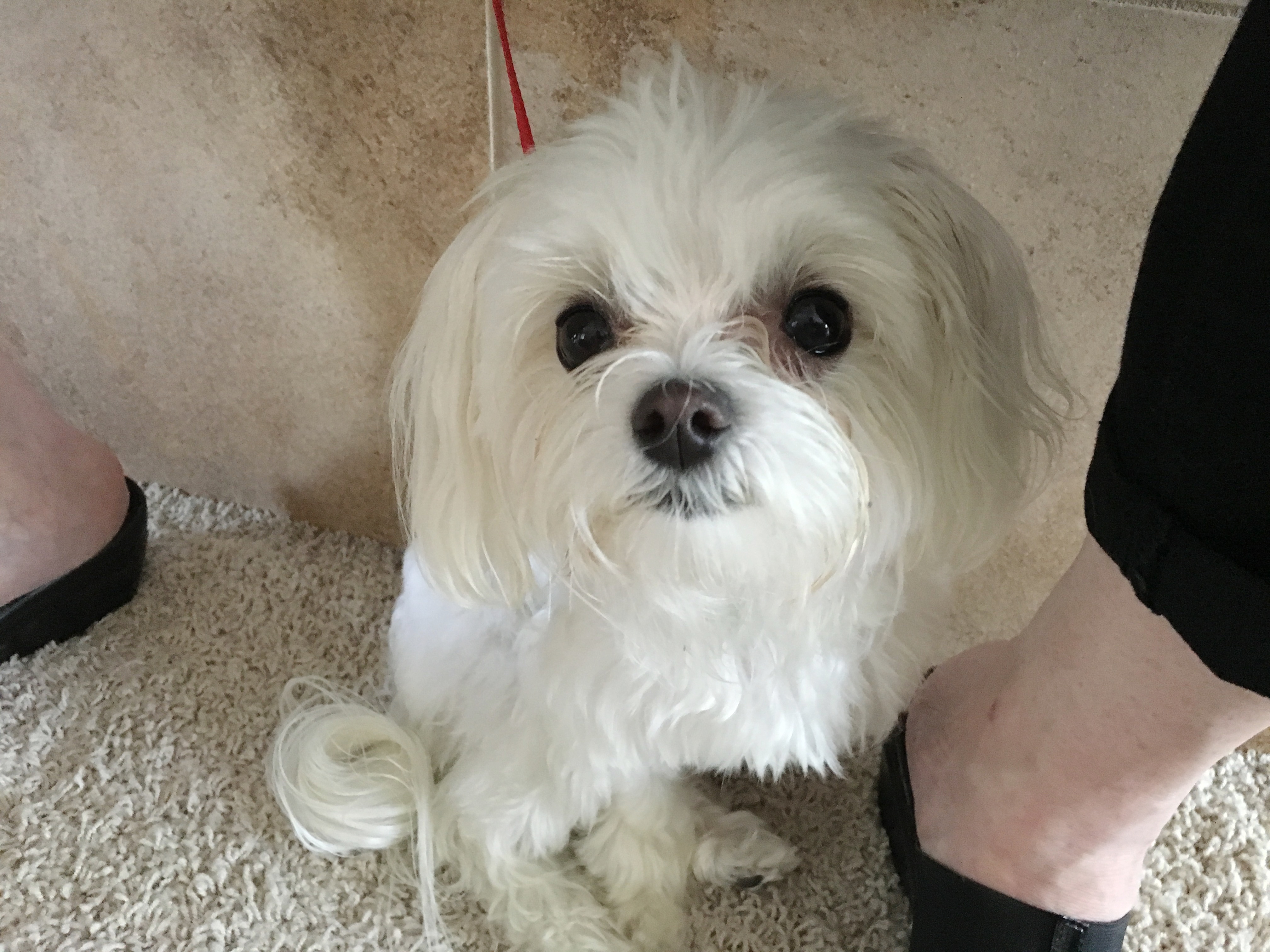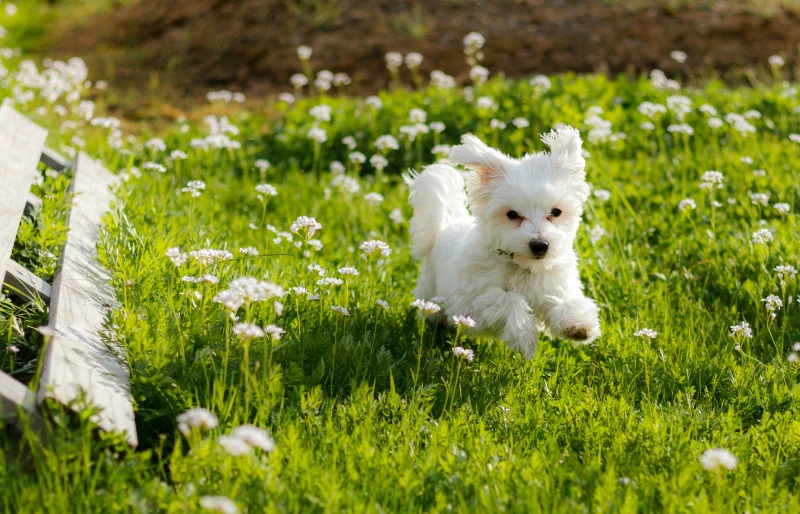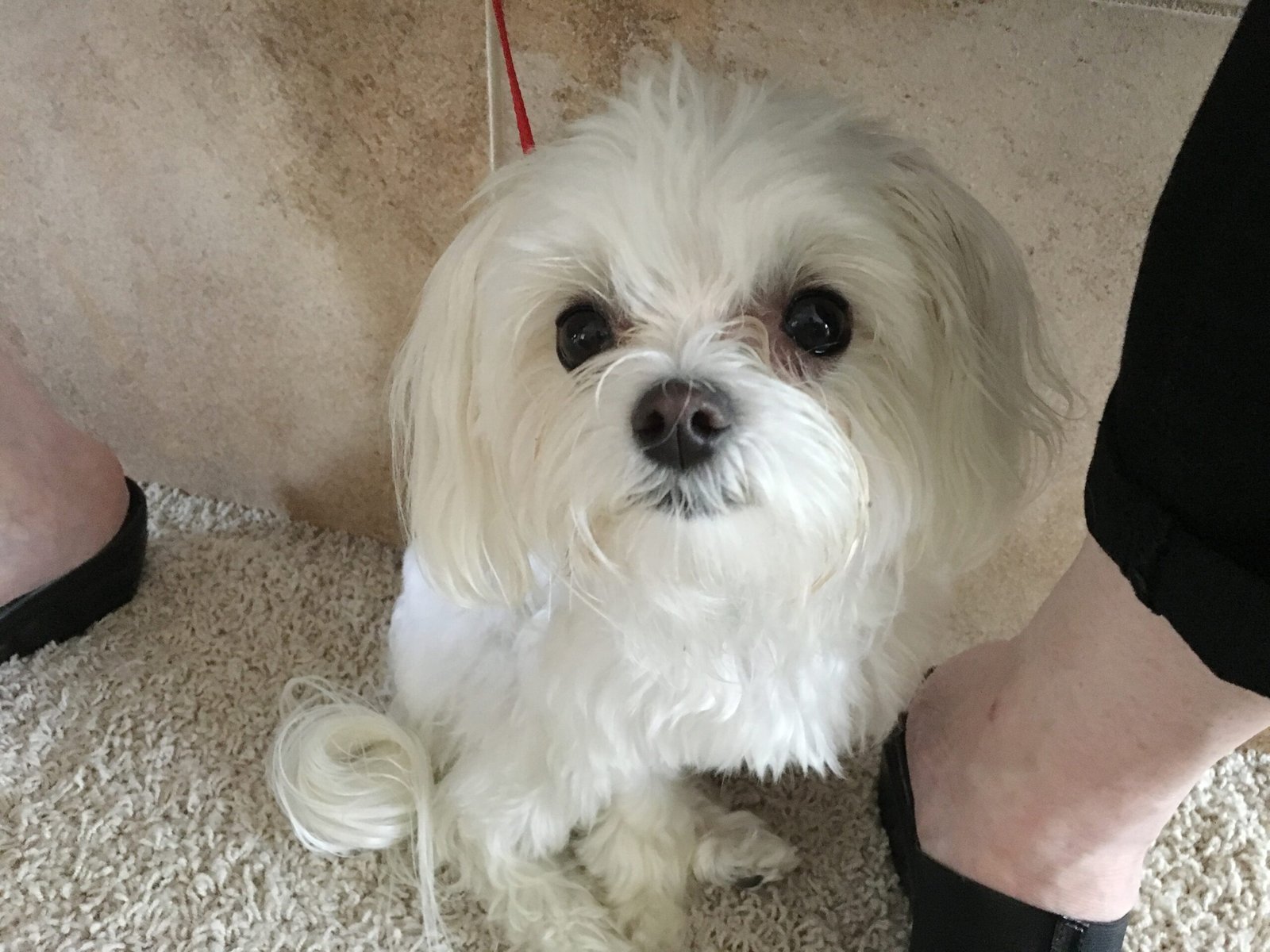Maltese puppies may seem like bundles of energy that never tire, but did you know that they actually calm down as they grow older? As cute and playful as they are, Maltese puppies can sometimes be a handful during their early stages of development. However, with proper training and socialization, they eventually learn to control their enthusiasm and become more relaxed companions.
When it comes to the timeline of when Maltese puppies calm down, it’s important to consider their breed characteristics and individual temperament. Typically, Maltese puppies start to calm down between the ages of 1 to 2 years old. However, this can vary as each dog is unique. Proper exercise, mental stimulation, and consistent training play crucial roles in helping them develop into well-behaved and more relaxed adult dogs. Patience and understanding are key when it comes to helping your Maltese puppy become a calm and balanced companion.

When Do Maltese Puppies Calm Down?
Welcome to our guide on Maltese puppies and their calmness! Maltese puppies are known for their adorable looks and lively personalities. As pet owners, it’s natural to wonder when your furry friend will calm down and become more relaxed. In this article, we will discuss the factors that influence the calmness of Maltese puppies, their developmental stages, and provide tips on how to help them find their inner zen.
Understanding Developmental Stages
Like all puppies, Maltese puppies go through different developmental stages. During the first few weeks of their lives, they are completely dependent on their mothers and siblings. Around 3 to 4 weeks, they start exploring their surroundings and becoming more curious. But it’s around the 8 to 10-week mark that the real energy boost happens. This is when their energy levels peak, and they become hyperactive and playful.
From 4 to 6 months, Maltese puppies start teething and may experience discomfort, leading to increased restlessness and chewing tendencies. As they approach their first year, you’ll notice a gradual decline in their energy levels. By this time, they have gone through their major growth spurts and have matured mentally and physically. However, every dog is unique, and individual factors also play a role in their energy levels.
It’s essential to remember that puppies, including Maltese, are naturally energetic and curious creatures. Their high energy levels are a sign of their good health and playful nature. Instead of focusing on when they will calm down completely, we should learn how to manage their energy levels and create a balanced and harmonious environment.
Factors Influencing Calmness
Several factors influence the calmness of Maltese puppies. Let’s take a closer look at some of these factors:
Diet:
A well-balanced diet is crucial for their overall health and energy levels. Ensure they are getting the right nutrients and avoid overfeeding, which can lead to excessive energy or weight gain.
Exercise:
Regular exercise is essential to help your Maltese puppy burn off excess energy and stay physically fit. Engage in daily walks, play sessions, and mental stimulation activities to keep them entertained and prevent boredom.
Training and Socialization:
Proper training and socialization from an early age can contribute to a more disciplined and well-mannered Maltese puppy. It helps them understand boundaries and creates a sense of calmness in various situations.
Environment:
The environment in which your Maltese puppy lives can impact their overall calmness. A calm and stress-free environment with minimal noise, routine, and a cozy sleeping area can promote relaxation.
Health and Wellness:
A Maltese puppy’s health condition can directly influence their energy levels. Regular visits to the veterinarian, proper grooming, and maintaining their overall well-being are crucial for a balanced temperament.
Age:
As mentioned earlier, age is a significant factor in the calmness of Maltese puppies. Most puppies start showing signs of calming down around 1 to 2 years of age. However, individual differences and lifestyle factors can influence this timeframe.
Consistency:
Consistency in your interactions, training methods, and daily routines is vital for a Maltese puppy’s emotional well-being. Consistency helps them feel secure, which can lead to a more relaxed and calm state of mind.
Tips for Encouraging Calmness
To help your Maltese puppy find their inner zen, here are a few tips:
Establish a Routine:
Create a consistent daily routine for your puppy, including set times for meals, walks, playtime, and sleep. A predictable routine can help them feel secure and calm.
Provide Mental Stimulation:
Engage your Maltese puppy in interactive toys, puzzles, and training exercises that challenge their minds. Mental stimulation can tire them out while providing entertainment and preventing boredom.
Offer a Calm Retreat:
Create a designated space where your Maltese puppy can retreat to when they feel overwhelmed or tired. This area should be comfortable, quiet, and equipped with cozy bedding.
Train with Positive Reinforcement:
Positive reinforcement techniques, such as reward-based training, can help promote obedience and calmness in your Maltese puppy. Reward good behavior with treats, praise, and affection.
Avoid Overstimulation:
Puppies, especially when young, can easily become overstimulated. Limit exposure to chaotic environments, loud noises, and too many new experiences at once. Gradually introduce them to new situations and environments.
Teach Self-Soothing Behaviors:
Encourage your Maltese puppy to engage in self-soothing behaviors, such as chewing on appropriate toys or grooming themselves. These activities can help them relax and calm down naturally.
Extra Tips: Crate Training, Socialization, and Patience
When it comes to ensuring the calmness of your Maltese puppy, a few additional factors should be considered. Let’s dive into some extra tips:
Crate Training:
Crate training can provide a safe and secure space for your Maltese puppy. It helps with potty training, prevents destructive behaviors, and creates a sense of calmness when they need a break or time alone.
Socialization:
Socialization is crucial for a well-rounded and calm Maltese puppy. Expose them to various people, animals, and environments from an early age to help them feel confident and comfortable in different situations.
Patience and Consistency:
Patience is key when it comes to raising a calm Maltese puppy. Remember that they are still learning and growing. Consistency in your training methods, routines, and expectations will help them develop a balanced temperament over time.
In conclusion, the calmness of Maltese puppies varies depending on several factors like age, training, health, and environment. While they naturally have high energy levels, creating a balanced lifestyle with proper nutrition, exercise, training, and a calm environment can help them find their inner zen. Remember to be patient, consistent in your methods, and provide them with love and care throughout their journey to becoming a calm and well-mannered adult Maltese.
When do Maltese puppies calm down?
- Maltese puppies usually start calming down around the age of one to two years old.
- Training and socialization play a crucial role in helping Maltese puppies develop good behavior and calmness.
- Providing regular exercise helps Maltese puppies release their energy and promotes a calmer demeanor.
- Neutering or spaying Maltese puppies can also contribute to their overall calmness.
- Every dog is different, so some Maltese puppies may remain more energetic even after reaching adulthood.
Frequently Asked Questions
Welcome to our FAQ section on the topic of when do Maltese puppies calm down. Below, we have five engaging questions and their corresponding answers to help you understand this topic better. Whether you’re a new Maltese puppy owner or considering getting one, this information will prove useful!
Q1: What are the typical energy levels of Maltese puppies?
Maltese puppies are known for their energetic nature. They are playful, active, and may have bursts of energy throughout the day. As puppies, they have a higher level of energy compared to adult dogs. This energy is a natural part of their development and can vary from one puppy to another. However, it’s important to note that all puppies, including Maltese, will eventually calm down as they mature.
While energetic, Maltese puppies benefit from regular exercise and playtime to help burn off their excess energy. Structured play, walks, and interactive toys are great ways to keep them engaged while promoting a healthy energy balance. Remember to gradually increase exercise intensity as they grow older to avoid overexertion.
Q2: When can I expect my Maltese puppy to start calming down?
Every Maltese puppy is different, and the process of calming down can vary. On average, Maltese puppies start to calm down between the ages of 1 to 2 years. However, this timeframe can be influenced by various factors, including genetics, training, and individual personality. Some puppies may begin to show signs of mellowing out earlier, while others may take a bit longer.
Patience is key as your Maltese puppy goes through this phase. Continue providing them with appropriate physical and mental stimulation, balanced training, and a nurturing environment. With time and consistent guidance, you’ll notice that their energy levels gradually decrease, and they become more settled and relaxed.
Q3: Are there any specific training techniques to help my Maltese puppy calm down?
Yes, there are training techniques that can help your Maltese puppy calm down. Start with the basics of obedience training, such as sit, stay, and a reliable recall command. This foundation establishes a level of control and helps redirect their energy in a positive way.
Consider incorporating relaxation exercises, like teaching your Maltese puppy to settle on a mat or in a designated area. Use reward-based training methods, offering treats and praise when they exhibit calm behavior. Engaging in mental stimulation activities, such as puzzle toys and interactive games, can also tire them out and promote a sense of calmness.
Q4: Can environmental factors impact when a Maltese puppy calms down?
Yes, environmental factors can influence the timing of when a Maltese puppy calms down. A stable and consistent environment, with a predictable routine and limited stressors, can contribute to a smoother transition into a calmer state. On the other hand, a chaotic or stressful environment may prolong their hyperactive behavior.
Ensure your Maltese puppy has a quiet space where they can retreat and relax. Create a calm atmosphere at home, minimize exposure to loud noises or excessive stimulation, and maintain a regular schedule for feeding, exercise, and sleep. These environmental considerations can positively impact their overall well-being and help them calm down more effectively.
Q5: Are there any health-related reasons why a Maltese puppy may struggle to calm down?
While it’s natural for Maltese puppies to have bursts of energy, excessive hyperactivity or an inability to calm down can sometimes be a sign of underlying health issues. For instance, certain medical conditions or discomfort may cause restlessness and heightened activity levels. If you notice persistent hyperactivity or behavioral changes, it’s important to consult with a veterinarian.
A thorough veterinary examination can rule out any medical conditions that may be contributing to your Maltese puppy’s inability to calm down. Medical interventions, if necessary, combined with behavior management techniques, can help address the issue and support your puppy in reaching a more balanced and relaxed state.

Summary:
Maltese puppies have a playful nature that requires patience and proper training. It is essential to give them plenty of exercise and mental stimulation to help them calm down. As they grow older, they tend to become more relaxed and less hyperactive. However, it is important to remember that each puppy is unique, and the calming process can vary. With proper care and consistent training, you can help your Maltese puppy become a well-behaved and calm companion. Remember, it takes time and effort, but the results are worth it!
Overall, Maltese puppies typically calm down as they mature, but it requires commitment and training. Be patient, keep providing love and guidance, and soon you’ll have a calm and happy Maltese companion by your side. Enjoy the journey of raising your furry friend!
